Collaboration and system change is challenging and complex. Working with others and creating the right conditions for effectively working together across disciplines and organisations is difficult.
Challenges in collaborative work could include: navigating inflexible structures and silos, power imbalances, leadership tensions, technology and digital transformation, data governance, ethics and security; evaluating and measuring progress; and sensitively managing and understanding conflicting interests, motivations, and approaches.
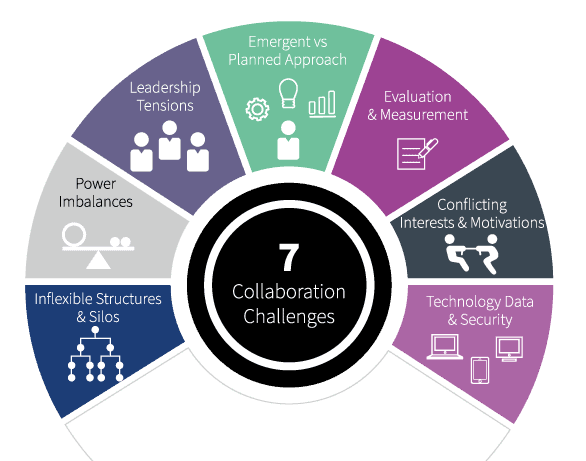
In my work with The Scottish Prevention Hub – a collaboration between Edinburgh Futures Institute, Police Scotland, and Public Health Scotland – we are embedding an approach to collaboration which essentially requires working differently.
We are applying a framework for collaboration based on our four-principle approach – being systems focused, working emergently, being relational, and having an inquiry mindset. We believe the sum of the parts will offer us an alternative and more effective way of working together. While our work is focused on ‘upstream prevention’ and reducing health and wellbeing inequalities in Scotland, this approach can be applied within different contexts.
4-Principle Collaborative Leadership Approach
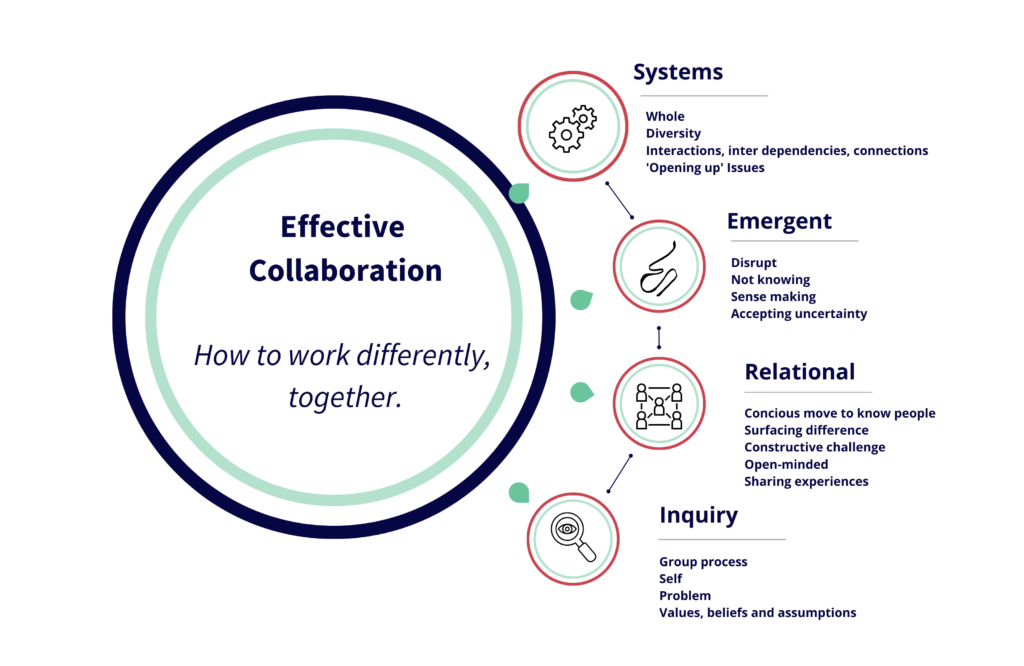
1. Systems-focused
The concept or the idea of taking a systems-focused approach is to think about our organisations as a collection of parts that function as a whole. This is needed in order to respond to shared and complex issues.
Adopting a systems mindset requires thinking about the contributions, processes, and outputs from all relevant organisations across any given system, including communities and citizens, all of which are considered to impact on an outcome. The idea of ‘opening up’ issues, in order to make sense of them and any potential root causes, inspires and alters the conversations that people choose to have.
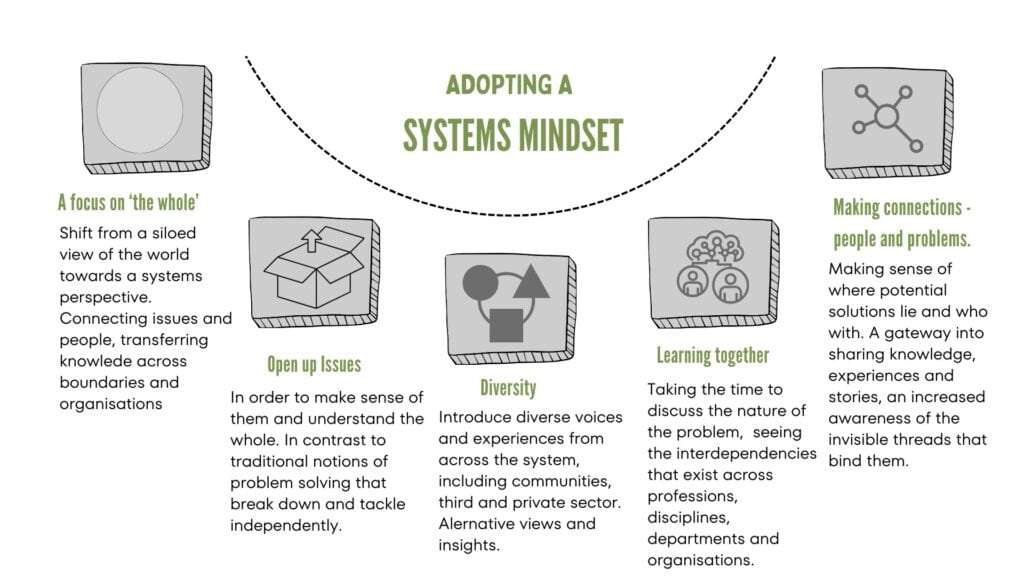
2. Emergent
Working in an emergent way (as opposed to a planned style) can be really helpful – although not easy. This approach generates a new way of working, often used when other planned approaches or ‘solutions’ have not worked.
Working emergently is sometimes explained as an unstructured method. Importantly it gives space and time, and allows for the unpacking of issues that are problematic and get in the way of collaborative work. Taking an emergent approach consists of a continuous process of experimentation and adaptation, which may result in small to medium incremental adjustments, leading to ideas, innovation and change.
This style of working disrupts traditional patterns, with new ideas and opportunities thought to emerge out of the process. Collective thinking and sense making is stimulated as group members strive to maintain an openness to stay with whatever emerges.
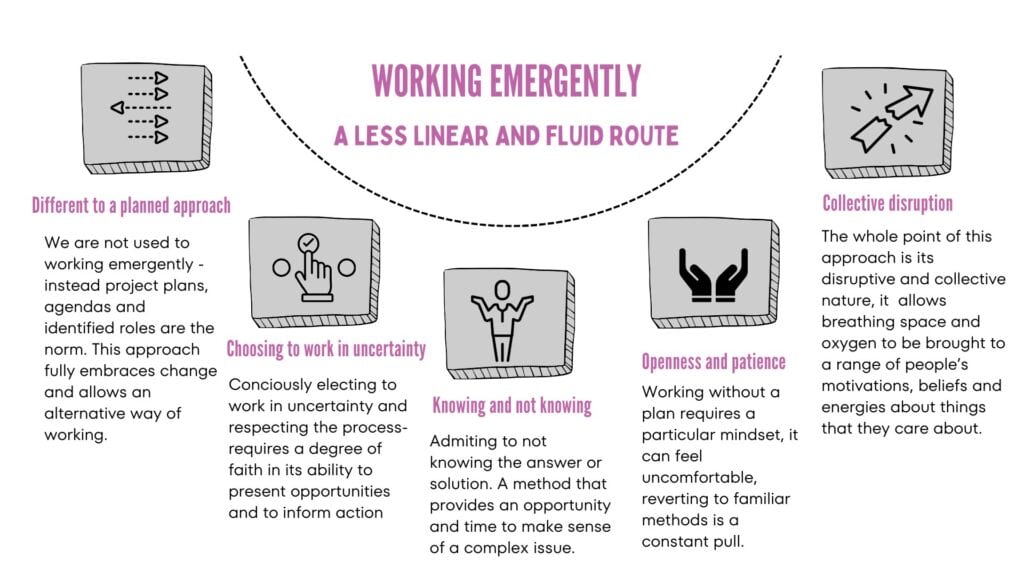
3. Relational
The benefits of investing in good quality relationships with those we work with are well documented. This is particularly important when working in groups made up of people from different organisations, professions, or disciplines. But what does this mean and how do we do it?
When we talk about what it means to be relational, this goes beyond knowing what someone’s job title is and having a rough idea of what their job entails. To be relational means understanding motivations (what gets them out of bed in the morning, what keeps them awake at night), their priorities – getting to know people beyond the ‘how are you doing’?
Building strong relationships is not an inevitable result of being in a partnership, in the same committee, on a Board, or sitting around a table. If we are pursuing meaningful collaboration then the quality of the relationships between individuals must be considered as important as the task.
Through paying attention to aspects of the ‘work process’ where values, attitudes, approaches, perspectives, behaviours, and beliefs are reflected on and purposefully considered can promote a shift in how we work. We become increasingly aware of our interactions and interconnectedness with others, which is necessary when navigating our way through cross boundary/disciplinary group work and when grappling with complex issues that require a collaborative response.
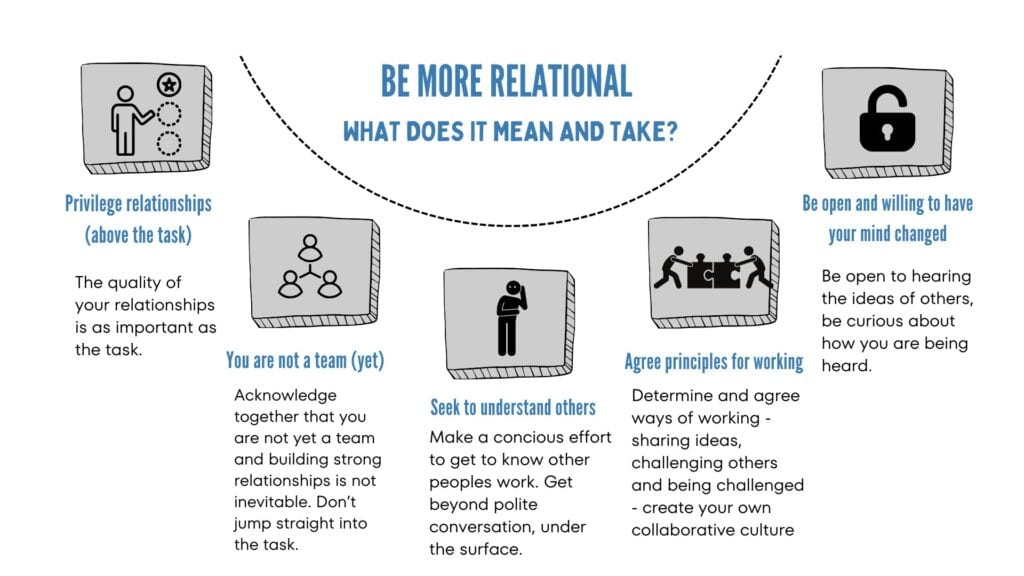
4. Inquiry-led
Beginning an inquiry into the group process, the issue or problem, and any deeply held personal values, behaviours and beliefs, promotes a quest for fresh learning, or the need to be open and curious, asking more questions and enabling different perspectives to be aired.
It seeks to merge the subjective (‘what do I think?’) with the intersubjective (‘what do we think?’) and the objective data (‘what has been done already and what was the result?’), in order to enrich self-awareness and shape a different way of working.
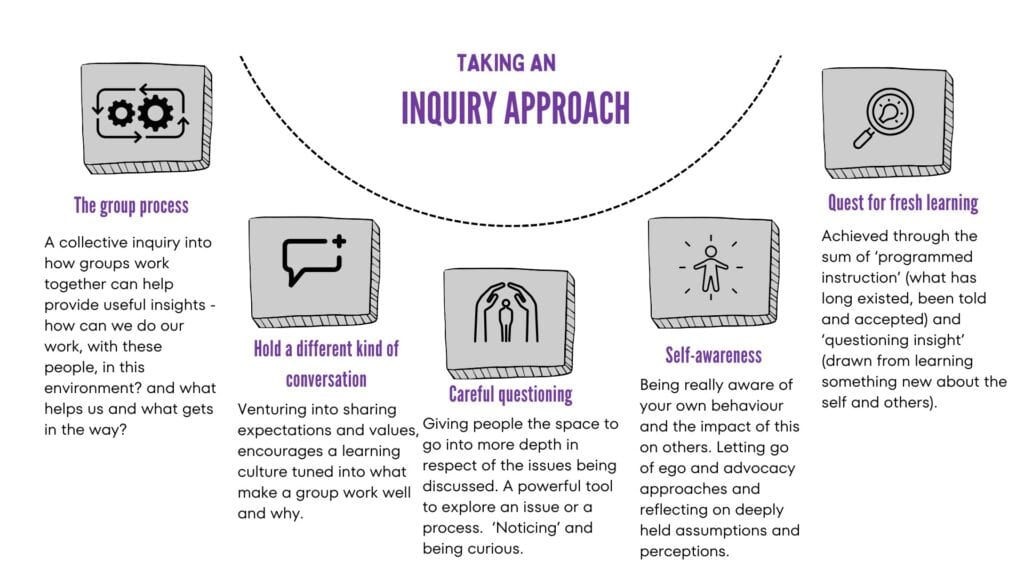
We will explore and share our experience of collaborative leadership in action as part of the Scottish Prevention Hub and continue to advocate for and support the need to build capacity and capability for complex, whole system, collaborative work.

All content is licensed as CC BY 4.0 (Creative Commons Attribution 4.0 International). ©️ Docherty, K. 2024.
Further information
New collaboration to focus on reducing inequalities
Find out more about the Scottish Prevention Hub





